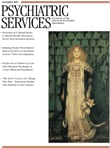Godless Medicine and The Sixth Cow
There are three kinds of authors who have an M.D. or D.O. degree. The first went to school, got a degree, and never practiced medicine, instead focusing his or her career on writing, such as Michael Crichton. The second is a practicing physician and author of well-crafted stories, such as Robin Cook. The third is a practicing or retired physician and an aspiring author who is practicing a craft he has not yet perfected. Michael F. Wright, D.O., a Texas internist and cardiologist, falls into this third category.
The two books reviewed here are Wright's first two novels. The two have much in common. Medical themes are integral to the plots. Both take on issues of political importance. Both have preposterous aspects to the plot development; whether this is intentional or not isn't totally clear. Both pit the forces of good against the forces of evil, with the good guys triumphing in the end. Both have characters that are parodies of themselves. Both are fun reads if one suspends all disbelief, skims through the didactic lectures embedded in the prose, and never wonders how the various characters ended up on the pages of a single novel.
Godless Medicine takes on the corrupt U.S. government, ill-served and underserved Vietnam veterans, rationing medical care for the elderly, the Catholic Church, self-serving senators, petty jealousy, alcohol abuse, conservation and wild life preservation, and sex. The Sixth Cow takes on the corrupt pharmaceutical industry, sanctioned and illegal research, cloning, the impaired and impoverished doctor-patient relationship, spying and snooping, and sex.
Individuals in the medical field will not be surprised by what they find here. Those naive to the issues facing contemporary medicine will be misinformed. That is the unfortunate aspect of these two novels. So much was wrong with medicine in the early years of this century that Wright did not have to invent problems or twist them beyond recognition. His fiction would have been much better had he stuck to the facts.



